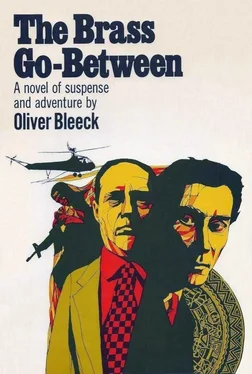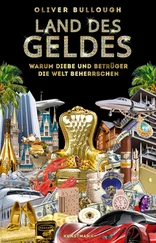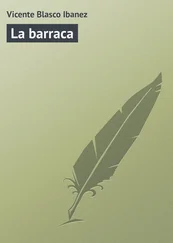Oliver Bleeck - Brass Go-Between
Здесь есть возможность читать онлайн «Oliver Bleeck - Brass Go-Between» весь текст электронной книги совершенно бесплатно (целиком полную версию без сокращений). В некоторых случаях можно слушать аудио, скачать через торрент в формате fb2 и присутствует краткое содержание. Город: New York, Год выпуска: 1969, Издательство: William Morrow, Жанр: Детектив, на английском языке. Описание произведения, (предисловие) а так же отзывы посетителей доступны на портале библиотеки ЛибКат.
- Название:Brass Go-Between
- Автор:
- Издательство:William Morrow
- Жанр:
- Год:1969
- Город:New York
- ISBN:нет данных
- Рейтинг книги:3 / 5. Голосов: 1
-
Избранное:Добавить в избранное
- Отзывы:
-
Ваша оценка:
- 60
- 1
- 2
- 3
- 4
- 5
Brass Go-Between: краткое содержание, описание и аннотация
Предлагаем к чтению аннотацию, описание, краткое содержание или предисловие (зависит от того, что написал сам автор книги «Brass Go-Between»). Если вы не нашли необходимую информацию о книге — напишите в комментариях, мы постараемся отыскать её.
Brass Go-Between — читать онлайн бесплатно полную книгу (весь текст) целиком
Ниже представлен текст книги, разбитый по страницам. Система сохранения места последней прочитанной страницы, позволяет с удобством читать онлайн бесплатно книгу «Brass Go-Between», без необходимости каждый раз заново искать на чём Вы остановились. Поставьте закладку, и сможете в любой момент перейти на страницу, на которой закончили чтение.
Интервал:
Закладка:
I caught a cab to the Hertz place, rented a four-door Ford Galaxie, and parked it in the Madison’s garage. In my room I tried to call Frances Wingo at home, but there was no answer. I poured a mild Scotch and water and then telephoned down for a steak sandwich and a tall glass of milk. I chewed the sandwich and drank the milk and tasted neither. Afterwards, I stretched out on the bed and studied the ceiling and watched some thoughts go galloping through my mind, stumbling a little now and again, but galloping around and around and winding up at the same place because they had nowhere else to go.
Chapter seventeen
The golf driving range was called Puckett’s and it took up several acres of gradually sloping land on Wisconsin Avenue just this side of the District line. A dozen or so golfers were trying to straighten out their hooks and slices with big tin buckets full of balls that they drove with varying success at markers which told whether they were hitting 100, 150, 200, or 300 yards. There was also a single marker that read 500 yards but nobody seemed to pay it much attention. Giant banks of floodlights provided almost day-bright illumination, and out in the middle of the driving range a gasoline-powered cart covered with a steel-mesh cage shuffled back and forth gobbling up the spent balls like an oversized vacuum cleaner. There were more cars than there were golfers. Some of them probably contained people whose television sets had broken down for the night and who would watch anything, even 45-year-old duffers, as long as it was for free. Some of the cars were empty and some contained lone women who seemed resigned to a fate which had married them off to men who thought that breaking 100 at Chevy Chase ranked in historical significance with the signing of a nuclear-test-ban treaty or dinner for four at the White House.
I parked the Ford five cars down from the white wooden hut that rented the balls and clubs. I sat there, exactly on time at 10:15, with $250,000 worth of neatly wrapped, well-used tens and twenties on the back seat, and watched a man in his sixties top his ball three times in a row, and waited for someone to open the rear door and hand in a brass shield that some thought could save the lives of thousands and which had already cost the lives of four.
At ten-seventeen the lights went out. One moment the big banks of floodlights on top of the tall wooden poles bathed the driving range in a glaring yellowish white. The next moment there was nothing but blackness, made even more impenetrable by the eyes’ inability to adjust. Reaction was slow. It took at least five seconds before the first horn blew. Then another. Somebody on the tee, a man, yelled, “What the hell—” and the rear door of the Ford opened. I forgot the warning and started to twist around and it may have saved my life. Something quite hard landed on the side of my head, just above the vulnerable temple, and I didn’t get to see who delivered the blow in what, I later decided, was a most competent and professional manner. Nor did I have the opportunity to see who made off with a man’s suitcase stuffed with a quarter of a million dollars in neatly wrapped, very negotiable currency.
When I came out of it I was lying on my back on the front seat and the first thing I saw was Demeter’s face upside down above me. I twisted my head quickly and threw up on the floorboards. While I was doing that Demeter kept saying, “Are you all right, are you all right?” and I kept wanting to say, “No, I’m not all right, my head hurts like hell,” but I had to throw up some more instead. Finally I was through and managed to sit up. I felt the sore place on my head and the knot seemed to be not less than an inch high and two inches wide. It wasn’t really that large; it only seemed so to my carefully sensitive touch. It hurt enough to be twice that large.
I leaned back in the seat and looked at Demeter, bending half crouched in the open right-hand door as if he couldn’t make up his mind whether to get in.
“Are you all right?” he said again. I noticed that the lights were back on.
“No,” I said. I started to turn around and look in the back seat, but I didn’t because I knew it wouldn’t be any use. “No shield,” I said.
“No,” Demeter said.
“No money either.”
“No. No money.”
“One of them got to the main switch.”
“Probably the woman,” he said.
“And the man slugged me and took the suitcase.”
“That’s right.”
“How long were the lights off?”
“Two minutes, maybe three,” he said.
“And they just drove off.”
“No.”
“Don’t tell me you caught them?”
“If they’d left from here, we would’ve. We had both ends of the street sealed off.”
I touched the bump on my head again. It seemed to have grown another inch. “But they didn’t leave from here.”
“Not exactly,” he said. “From down there,” and he pointed across the driving range to its far edge where the shielded cart that sucked up the golf balls rested a few feet away from the lone sign that read five hundred yards.
“How long was I out?” I said.
“Maybe ten, eleven minutes.”
“How’d they do it?”
“They probably cased the place earlier today and found out where the main switch is. It’s in a metal box outside the shack. Don’t ask me why. Puckett says he locks it when he leaves at night, but he doesn’t lock it while he’s operating. They parked their car over there beyond those trees that are behind the five-hundred-yard marker. Walked over here and sat around watching the golf balls or even hit a few themselves until you arrived. Then she doused the lights, he slugged you, grabbed the money, and ran for the cart. That’s how I figure it anyhow.”
“How’d they find it in the dark?”
“The cart? They had a flashlight. I saw it out there, but I thought it was the guy in the cart. Anyway they slugged him and then drove to the edge of the range, jumped out, and now they’re probably home free counting the money.”
I started to shake my head but decided not to because it might hurt too much. “Clever,” I said. “Where were you and the good Sergeant Fastnaught when the lights went out, if the phrase be permitted?”
“Just four cars down from you,” Demeter said in a glum voice. “Just four lousy cars away.”
“That’ll look good in your report.”
Demeter glared at me. “Don’t ride me, St. Ives.”
“Have you told the museum or Mrs. Wingo?” I think he almost blushed. At least he looked embarrassed.
“No. Not yet.”
I slid over the seat, under the wheel, and started the engine. “Good luck,” I said.
“Where you going?”
“Well, I don’t think I can lose another quarter of a million here tonight so I thought I’d go back to the hotel and order up some ice. Some of it I’ll wrap in a towel and apply to my head. The rest I’ll use to chill what probably will prove to be a large amount of strong drink. I’ll also call Frances Wingo for you and tell her how I managed to spend the museum’s two hundred and fifty thousand bucks.”
“Uh,” Demeter said.
“Any message for her? Something reassuring like several new leads have turned up in the course of the investigation and arrests are momentarily expected? She might like that.”
Demeter slammed the right door. “Go back to the hotel, St. Ives. Go back and get drunk. Roll in the gutter. But just get out of my sight.”
I left.
Back in the hotel’s garage I gave the attendant five dollars to clean up the mess on the front floorboards and then checked the desk for messages. There were two from Frances Wingo. I went up to my room and called her number. She answered on the second ring, as if she’d been waiting for it.
Читать дальшеИнтервал:
Закладка:
Похожие книги на «Brass Go-Between»
Представляем Вашему вниманию похожие книги на «Brass Go-Between» списком для выбора. Мы отобрали схожую по названию и смыслу литературу в надежде предоставить читателям больше вариантов отыскать новые, интересные, ещё непрочитанные произведения.
Обсуждение, отзывы о книге «Brass Go-Between» и просто собственные мнения читателей. Оставьте ваши комментарии, напишите, что Вы думаете о произведении, его смысле или главных героях. Укажите что конкретно понравилось, а что нет, и почему Вы так считаете.












